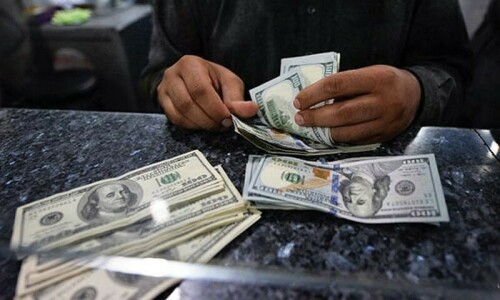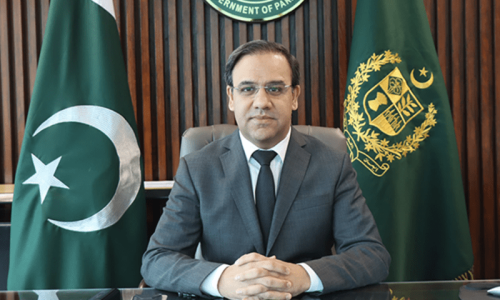KARACHI: The country received $150 billion in remittances during the five years from 2017 to 2022 and was ranked fifth among the top remittances-receiving countries in 2022.
This was revealed in the 2nd Albaraka Regional Conference over the role of home remittances held on Monday.
According to the Saleh Kamel Islamic Economy Database, Pakistan received around $150bn in home remittance from 2017 to 2022. This ranks Pakistan fifth among the top remittance-receiving countries in 2022, with $29.9bn coming into the country that year. Global remittances reached $758bn in 2022, with OIC countries receiving 25.5 per cent, or $193bn, of this amount.
Home remittances are crucial for Pakistan as they constituted 33pc of total imports, making it the second highest among OIC countries and fifth globally in 2022.
AlBaraka Forum for Islamic Economy in collaboration with the Islamic Chamber of Commerce and Development (ICCD) hosted the 2nd AlBaraka Regional Conference to shed light on the crucial role of home remittances in Pakistan and their impact on sustainable development.
“As one of the 57 member states of the OIC, Pakistan plays a crucial role in promoting economic integration through home remittances. Islamic financial institutions facilitate these remittances, encouraging recipients to invest sustainably in local businesses and welfare programmes,” said Yousef Khalawi, secretary-general of the AlBaraka Forum for Islamic Economy.
Collaboration between governments and financial institutions is essential to establish secure, user-friendly and legal channels for remittances and foster linkages with international financial institutions, he said.
The discussion started with keynote addresses delivered by Dr Ahmad Kawesa Sengendo, assistant secretary-general for economic affairs of the Organisation of Islamic Cooperation (OIC); Dr Mufti Irshad Ahmad Aijaz, chairman of the SECP’s Shariah Advisory Committee, former SBP governor Dr Ishrat Husain, and Head of SBP’s Pakistan Remittance Initiative Mr Zulfiqar Ali Khokar, sharing industry insights and future outlook for the country.
The conference conclusively put forth policy frameworks and future outlooks for home remittances, including suggestions to streamline remittance flows so they contribute to sustainable economic growth. The stakeholders also delved into future trends and outlook for home remittances in Pakistan and emphasised the need to collectively work on innovative strategies to further enhance the positive impact on the national economy.
The event brought together leading experts, decision-makers, and stakeholders to engage in dialogue about strengthening Islamic finance tools to achieve the Sustainable Development Goals (SDGs) and align remittance strategies with sustainable development objectives in a globally changing remittance landscape.
Published in Dawn, January 30th, 2024














































Dear visitor, the comments section is undergoing an overhaul and will return soon.